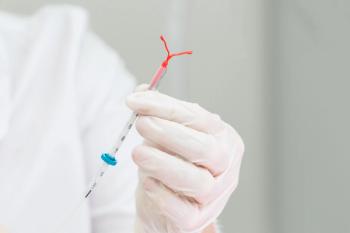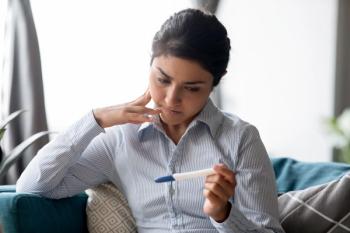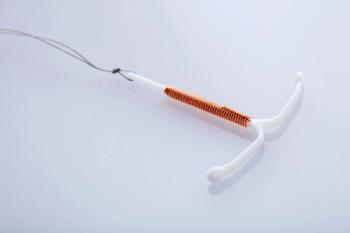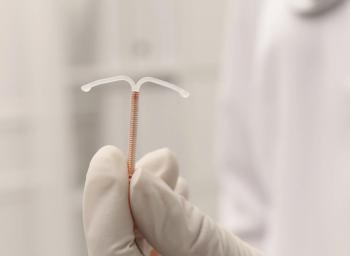
Drs Jenna Beckham and Thomas Kimble share their thoughts on initiating conversations surrounding contraception options with patients.

Drs Jenna Beckham and Thomas Kimble share their thoughts on initiating conversations surrounding contraception options with patients.

Jenna Beckham, MD, MSPH, FACOG, and Thomas Kimble, MD, provide an overview of the use of contraception methods in the US.

A study published in the journal Contraception shows patients sought guidance from clinics to remove their own IUDs at a much higher rate than before the pandemic.

Results from a randomized controlled trial study suggest dextromethorphan may even worsen patient pain experience.

An over-the-counter (OTC) progestin only pill (POP) could potentially reduce the overall number of unintended pregnancies in the United States, according to a modeling study published in the journal Contraception.

The major conclusion of a demographic and health survey of sexually active women from the sub-Saharan African country Chad is that education is key for adopting modern contraceptive methods.

Rhesus (Rh) immunoglobulin should be given only after 12 weeks gestation for spontaneous abortion, or for medication or uterine aspiration abortion, according to a new consensus statement from the Society of Family Planning (SFP).

Service disruptions at the start of the COVID-19 pandemic altered and exacerbated geographic disparities in access to abortion care in Louisiana, according to a study published in Contraception.

Federal health programs that provide services to economic and racial minorities may have a reputation for providing less empathetic or patient-centered care than private health care institutions, but a new study shows that—at least in contraceptive counseling¬—that’s not the case.

A study in the journal Contraception found that, within the first year of the COVID-19 pandemic in the US, abortion clinics in states with low or medium hostility to abortion were significantly more likely to embrace innovative medication abortion practices such as changing ultrasound requirements, offering telehealth or dispensing medications without a physical exam, compared to abortion clinics in states with high or extreme hostility to abortion.

The fact that copper-containing intrauterine devices (Cu-IUDs) can increase bleeding and discontinuation rates compared to levonorgestrel-releasing IUDs (LNG-IUDs) does not mean clinicians should steer patients toward the latter, according to a review published in BMC Women’s Health. Due to high satisfaction rates with both devices, authors recommend letting patients choose based on their needs and preferences.

The survey highlighted increased services through primary care and in rural areas, and also emphasized a need for more providers to ensure equitable access.

Women with higher body mass indexes (BMI) and weights are significantly more likely to experience failure with levonorgestrel as emergency contraception than women with lower BMIs and weights.

Community perspectives on pharmacist-prescribed hormonal contraception in rural California reveal that awareness among potential users is low, despite people being supportive and interested in the service.

Lois McGuire, MSN, APRN, WHNP-BC, NCMP, shared her expertise in perimenopausal contraception during the Nurse Practitioners in Women’s Health (NPWH) 25th Annual Premier Women’s Health Conference, held in Houston, Texas from September 28 to October 2, 2022.

Practicing clinicians were highly impressed with an interactive, virtual intrauterine device (IUD) training model that increased their comfort with IUD placement and removal, according to a study published in the journal Family Medicine.

A systematic review on measuring unmet need in sexual and reproductive health has concluded that the emphasis is on contraception for women in low-income countries, while unmet need for sexual health in general, especially among men, and unmet reproductive health need in high-income settings lack much evidence.

In a recent study, it was found that access to contraceptive services declined during the COVID-19 pandemic.

Nearly half (45%) of all pregnancies in the United States from 2015 to 2019 were unintended.

Consider the needs of marginalized patients to promote equity

After a recent FDA approval, Mirena can be used to prevent pregnancy for up to 8 years.

Best practices on discussing birth control for adolescents.

State regulations overruled to protect physicians’ clinical judgments.

Perrigo’s HRA Pharma has submitted an application to the US Food and Drug Administration (FDA) for possible future approval of the first-ever OTC birth control pill.

US President Joe Biden signed an executive order Friday protecting nationwide access to abortion and contraception.